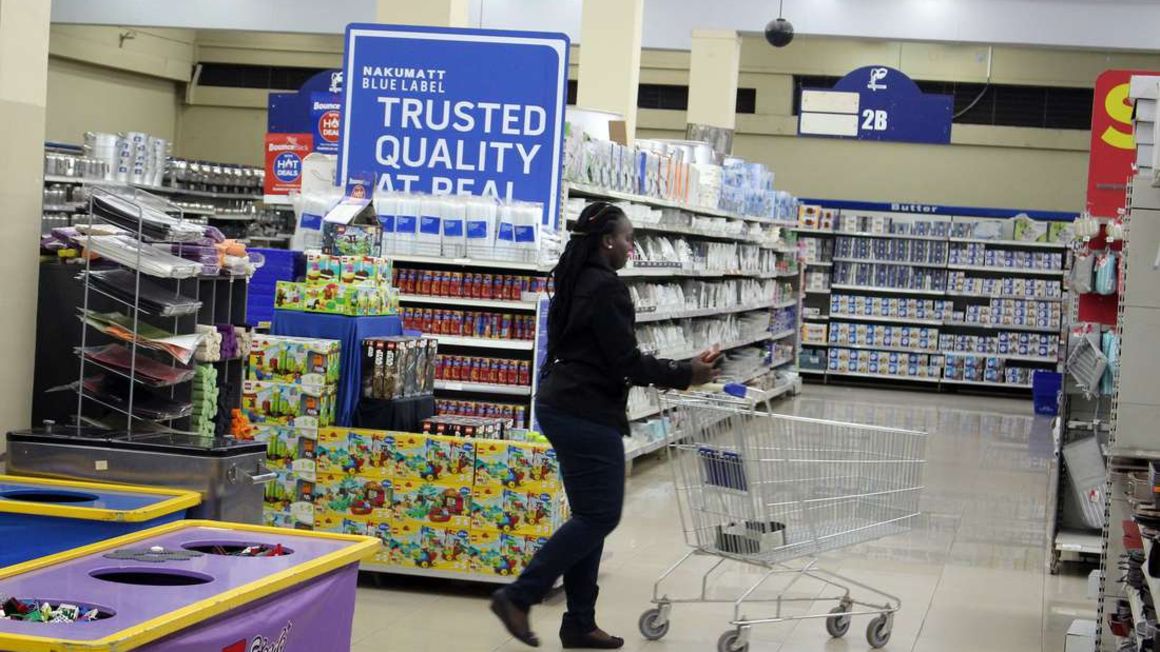A shopper navigates filled-up shelves at Nakumatt Prestige Plaza on Ngong Road in Nairobi on June 29, 2018 during better times for the retailer. File Uchumi talked of expanding to 50 branches across East Africa in 2015 after raising Sh900 million from shareholders.
In reality, the retailers dug themselves into a hole by using supplier proceeds to fund their own projects.
The Competition Authority of Kenya in June ordered Tuskys to pay suppliers Sh2.7 billion within a month.
They were not supposed to collapse. But when they did, the once robust kings of the local retail sector left a trail of expensive tears and went down with more than Sh43 billion of suppliers’ money.
By any estimation, it is a tragedy for many businesses that relied on these supermarkets to survive. The retail chains’ boards and banks have pulled the plugs on the struggling businesses and creditors can only watch and count their losses.
How and why the biggest retail chains in East Africa have collapsed has continued to baffle observers especially after the fast-expanding Nakumatt went down with Sh35.8 billion of creditors’ money. And this is just the debts owed in Kenya, as its Ugandan and Tanzanian operations also left several creditors high and dry.
Is this the end of mega-physical stores? Uchumi and Tuskys are in limbo, too, and could follow Nakumatt anytime — if creditors lose hope of recovering their debts.
Starting today, the Nation brings you the inside stories on how these supermarkets found themselves in turmoil. Three biggest retailers
Barely five years ago, they were the three biggest retailers this side of Africa, raking in billions every year as millions of East Africans strolled into their 163 branches across the region. They all talked big about their future plans.
Uchumi talked of expanding to 50 branches across East Africa in 2015 after raising Sh900 million from shareholders. Nakumatt and Tuskys thumped their chests about listing in the Nairobi Securities Exchange and giving Kenya’s blue chip companies a run for their money at the bourse.
Behind the curtains, the three retailers were grappling with mismanagement, insider theft and, in the case of Tuskys, family wrangles over control of the company.All the braggadocio and big money talk was just a smokescreen aimed at concealing losses and cooking books while keeping suppliers at bay.The retail sector is risky business as most debts are taken without any form of collateral, meaning it largely […]
